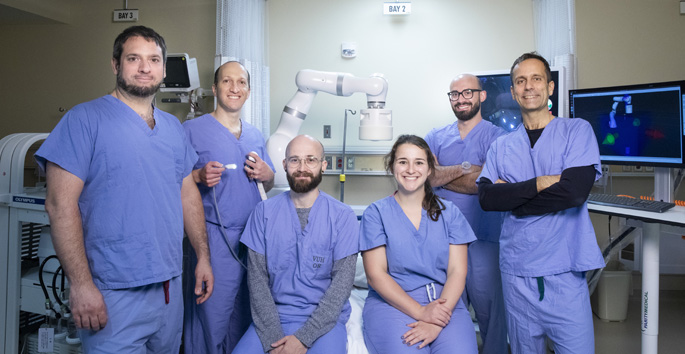
by Jill Clendening
A Vanderbilt Institute for Surgery and Engineering (VISE) research team is conducting the first phase 1 clinical trial of a magnetic, flexible endoscope that has the potential to provide a safer alternative to standard colonoscopy, particularly for individuals with inflammatory bowel disease (IBD).
The in-human studies of a magnetically actuated robotic platform for colonoscopy developed by the group, including demonstration of intelligent control with assistive autonomy using magnetic fields, began this month at Vanderbilt University Medical Center.
Phase 1 clinical trials involve a small number of patients and are intended to assess the safety of the treatment. The investigative team received a four-year, $1.2 million National Institutes of Health grant to support their research.
Keith Obstein, MD, MPH, professor of Medicine at VUMC and professor of mechanical engineering at Vanderbilt University, is the principal investigator. The phase 1 trial is a continuation of a VISE collaboration between Obstein and Pietro Valdastri, PhD, a former assistant professor of mechanical engineering at Vanderbilt, now professor and chair in Robotics and Autonomous Systems at University of Leeds. Obstein and Valdastri run the Science and Technology of Robotics in Medicine (STORM) Lab USA and UK, respectively.